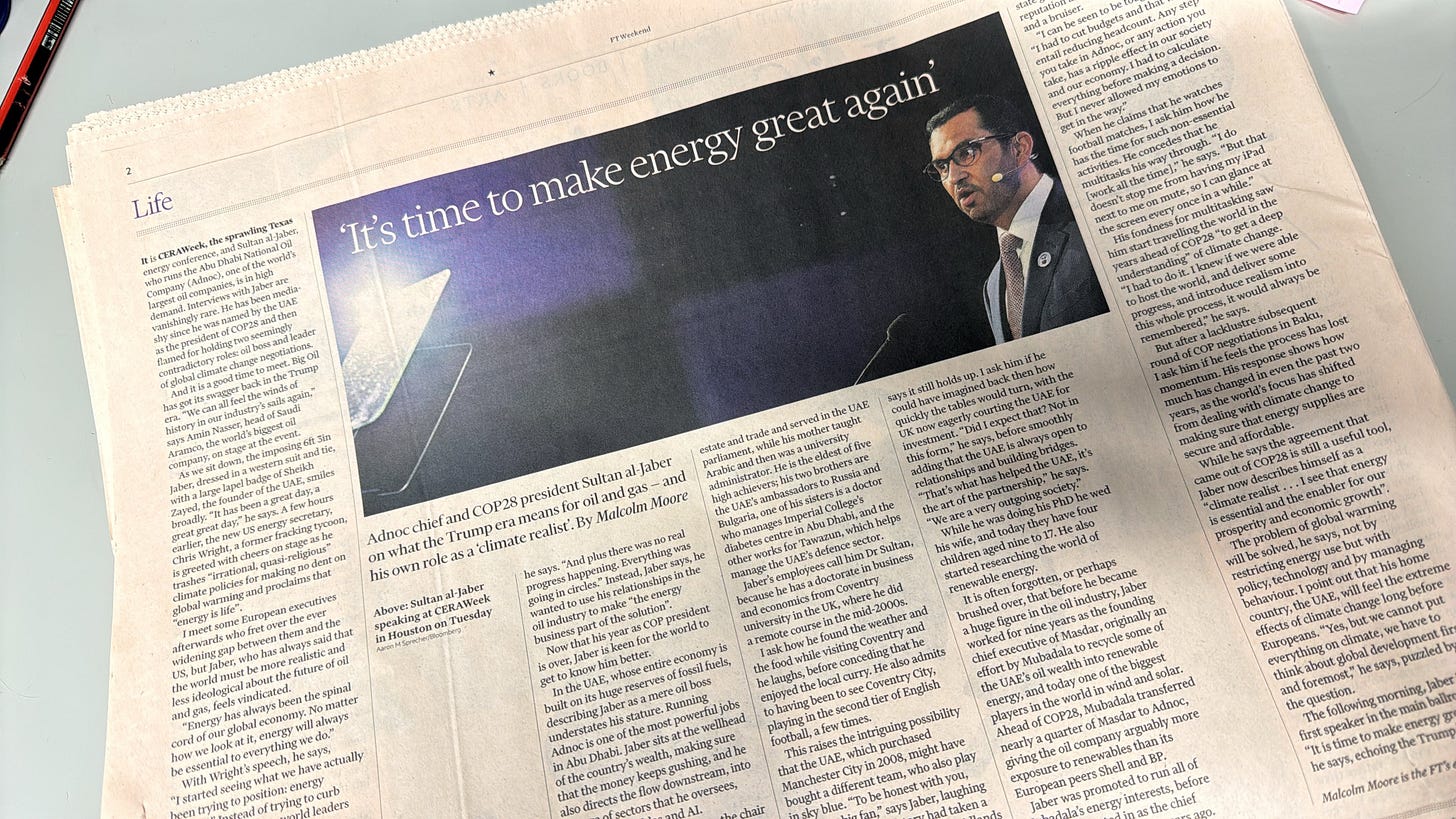On the Financial Times' profile of Sultan Al-Jaber, oil man
Stenography is not Journalism
When I read an article like the one published on the Financial Times Weekend by Malcolm Moore, their energy editor, I feel like I am losing my mind.
Moore interviewed Sultan Al-Jaber, the Emirati oil man who was given presidency of COP281 because it was the UAE's turn. The interview was uncritical, scarcely different than would have been written by a stenographer. I'm sorry, I don't intend to be mean or anything, but I want to try and explain why I found it profoundly unprofessional. I question the Financial Times for publishing it.
At the top of the page (I got the print version) is a photo of Jaber making a speech with the following quote: “It's time to make energy great again.” Jaber, Moore tells us, calls himself a ‘climate realist’ which is actually not different in any me…



